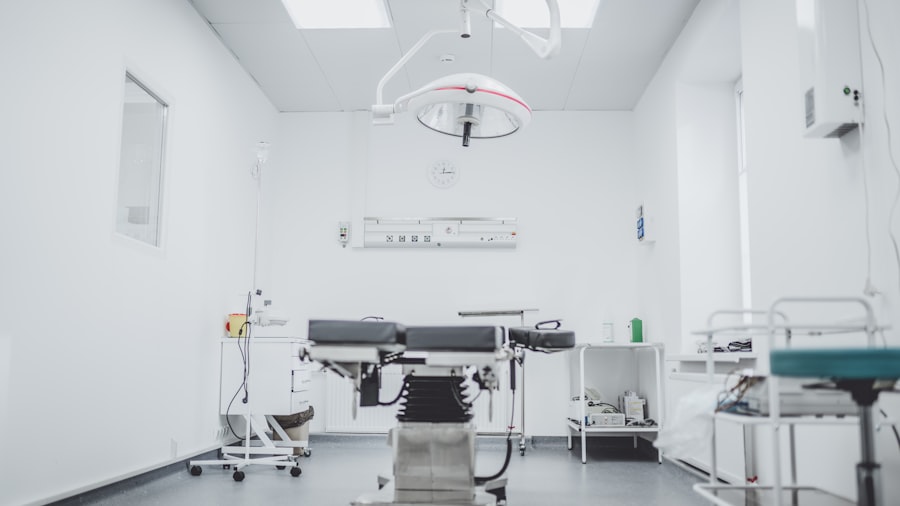In Norway, the D-number serves as a crucial identifier for individuals who are not permanent residents but require access to various services, including healthcare. This unique identification number is essential for anyone who intends to stay in Norway for more than six months or for those who are temporarily residing in the country. The D-number facilitates the registration process within the Norwegian healthcare system, allowing individuals to access necessary medical services, prescriptions, and consultations without undue complications.
It acts as a bridge between the individual and the healthcare system, ensuring that medical records can be accurately maintained and that patients receive appropriate care. The significance of the D-number extends beyond mere identification; it is a key component in ensuring that healthcare services are delivered efficiently and effectively. Without a D-number, individuals may face challenges in accessing healthcare services, as many providers require this number for billing and administrative purposes.
This can lead to delays in treatment or even denial of services, which can be particularly concerning in urgent medical situations. Therefore, understanding the importance of obtaining a D-number is paramount for anyone planning to live or work in Norway, as it directly impacts their ability to navigate the healthcare landscape. Book your 1-hour strategy session with Norway Relocation Group.
Summary
- A D-Number is essential for accessing healthcare services in Norway
- Alternative identification options may be available for accessing healthcare services
- Registering for healthcare services without a D-Number can be a complex process
- Individuals without a D-Number still have rights and entitlements to healthcare services
- Emergency healthcare services can be accessed without a D-Number
Exploring Alternative Identification Options for Accessing Healthcare Services
For those who find themselves in Norway without a D-number, it is essential to explore alternative identification options that may facilitate access to healthcare services. While the D-number is the most recognised form of identification within the healthcare system, there are other forms of identification that can be used in certain circumstances. For instance, individuals may present their passport or national identity card when seeking medical assistance.
Some healthcare providers may accept these forms of identification, particularly in emergency situations where immediate care is required. Additionally, individuals may consider obtaining a temporary identification number from the Norwegian Tax Administration if they are staying in Norway for an extended period. This temporary number can sometimes be used to access healthcare services, although it may not carry the same weight as a D-number.
It is advisable for individuals to communicate openly with healthcare providers about their situation and inquire about any alternative identification options that may be accepted. By being proactive and informed, individuals can better navigate the complexities of accessing healthcare services without a D-number.
Navigating the Process of Registering for Healthcare Services Without a D-Number

Registering for healthcare services in Norway without a D-number can be a daunting task, but it is not insurmountable. The first step involves identifying the local healthcare provider or clinic that one wishes to register with. Many clinics have specific protocols in place for individuals without a D-number, and it is advisable to contact them directly to understand their requirements.
Some clinics may require proof of residency or employment in Norway, while others may have more flexible policies. Once the appropriate clinic has been identified, individuals should prepare to provide any necessary documentation that may support their registration. This could include proof of identity, such as a passport, as well as any relevant medical history or documentation from previous healthcare providers.
It is also beneficial to inquire about any potential costs associated with receiving care without a D-number, as some clinics may charge higher fees for non-residents or those without proper identification. By being well-prepared and informed about the registration process, individuals can increase their chances of successfully accessing healthcare services in Norway.
Understanding the Rights and Entitlements for Individuals Without a D-Number
Individuals without a D-number in Norway still possess certain rights and entitlements when it comes to accessing healthcare services. While their access may be limited compared to those with a D-number, it is important to understand that everyone has the right to receive emergency medical care regardless of their identification status. This fundamental right ensures that no one is denied critical medical attention due to bureaucratic hurdles.
Moreover, individuals without a D-number may also have access to specific healthcare services depending on their circumstances. For instance, those who are working temporarily in Norway may be entitled to certain benefits under their employer’s health insurance plan. It is crucial for individuals to familiarise themselves with their rights and entitlements by consulting with local health authorities or legal advisors who specialise in healthcare rights.
By understanding these rights, individuals can advocate for themselves and ensure they receive the necessary care they require.
Accessing Emergency Healthcare Services Without a D-Number
In emergency situations, accessing healthcare services without a D-number is not only possible but also imperative. Norwegian law mandates that all individuals have the right to receive emergency medical treatment regardless of their residency status or identification. This means that if someone finds themselves in a critical situation requiring immediate medical attention, they should seek help without hesitation.
When accessing emergency services, individuals should go directly to the nearest hospital or call emergency services if necessary. It is advisable to bring any form of identification available, such as a passport or national ID card, as this can help streamline the process upon arrival at the hospital. Medical professionals are trained to prioritise patient care above all else, and they will provide treatment based on medical need rather than administrative status.
Understanding this right can alleviate some of the stress associated with navigating the healthcare system without a D-number.
Exploring Private Healthcare Options for Individuals Without a D-Number

For those without a D-number who seek more immediate or specialised care, exploring private healthcare options can be an effective alternative. Private clinics and hospitals in Norway often have different policies regarding identification requirements compared to public healthcare facilities. Many private providers may be more flexible and willing to accept alternative forms of identification such as passports or temporary identification numbers.
While private healthcare can be more expensive than public options, it often offers shorter waiting times and more personalised care. Individuals should research various private healthcare providers in their area and inquire about their policies regarding patients without a D-number. Additionally, some private clinics may offer payment plans or sliding scale fees based on income, making it more accessible for those who may be concerned about costs.
By considering private healthcare options, individuals can ensure they receive timely and effective medical attention even without a D-number.
Understanding the Implications of Not Having a D-Number for Long-term Healthcare Needs
Not having a D-number can have significant implications for long-term healthcare needs in Norway. Individuals without this identification may find it challenging to establish ongoing relationships with healthcare providers or access regular check-ups and preventative care services. This lack of continuity can lead to gaps in medical history and hinder effective treatment plans for chronic conditions.
Furthermore, individuals without a D-number may face difficulties in obtaining necessary referrals for specialist care or accessing prescription medications on an ongoing basis. Many specialists require patients to have a D-number before they will accept them into their practice, which can create barriers for those needing specialised treatment. It is essential for individuals in this situation to actively seek out resources and support networks that can assist them in navigating these challenges and advocating for their long-term health needs.
Navigating the Process of Obtaining Prescriptions and Medications Without a D-Number
Obtaining prescriptions and medications without a D-number can be complex but not impossible. In Norway, pharmacies typically require patients to present a valid prescription from a licensed healthcare provider before dispensing medications. For individuals without a D-number, this means they must first consult with a doctor who is willing to see them despite their lack of identification.
When visiting a doctor’s office or clinic, it is crucial to explain your situation clearly and provide any alternative forms of identification available. Some doctors may be willing to issue prescriptions based on an assessment of your medical needs even if you do not have a D-number. Once you have obtained a prescription, you can take it to any pharmacy; however, be prepared for potential additional costs if you are not registered within the public health system.
Seeking Specialist Healthcare Services Without a D-Number
Accessing specialist healthcare services without a D-number presents its own set of challenges but remains feasible with determination and resourcefulness. Many specialists in Norway require patients to have a D-number before they will accept them into their practice; however, there are exceptions where some specialists may be willing to see patients on a case-by-case basis. To seek specialist care without a D-number, individuals should start by consulting with their general practitioner (GP) or primary care provider who may be able to refer them directly to specialists willing to accommodate non-residents or those lacking proper identification.
It is also beneficial to research private specialists who might have more flexible policies regarding patient registration. By being proactive and persistent in seeking out specialist care, individuals can still receive the necessary treatment despite not having a D-number.
Exploring Support and Advocacy Services for Individuals Without a D-Number
Navigating the Norwegian healthcare system without a D-number can be overwhelming; however, various support and advocacy services are available to assist individuals facing these challenges. Numerous non-profit organisations and community groups focus on helping expatriates and non-residents understand their rights within the healthcare system and provide guidance on accessing necessary services. These organisations often offer resources such as informational workshops, one-on-one consultations, and legal advice tailored specifically for those without proper identification.
Engaging with these support networks can empower individuals by providing them with knowledge about their rights and options within the Norwegian healthcare landscape. Additionally, these groups can help facilitate communication between patients and healthcare providers, ensuring that individuals receive the care they need despite bureaucratic obstacles.
Understanding the Rights and Options for Expatriates and Non-Residents in Norway’s Healthcare System
Expatriates and non-residents living in Norway must understand their rights and options within the country’s healthcare system to ensure they receive adequate medical care when needed. While having a D-number significantly eases access to services, non-residents still retain certain rights under Norwegian law that protect their ability to seek medical assistance. For instance, expatriates working temporarily in Norway may be entitled to health insurance coverage through their employer’s plan or through reciprocal agreements between Norway and their home country.
It is essential for expatriates to familiarise themselves with these agreements and understand how they impact their access to healthcare services while residing in Norway. By being informed about their rights and available options, expatriates can navigate the complexities of the Norwegian healthcare system more effectively. In conclusion, while navigating Norway’s healthcare system without a D-number presents challenges, understanding one’s rights and exploring available options can significantly ease this process.
From emergency care access to private healthcare alternatives and advocacy support services, there are pathways available for individuals seeking medical assistance despite lacking formal identification. For those looking to learn Norwegian language skills that could further enhance their experience in navigating these systems effectively, consider enrolling in courses at NLS Norwegian Language School. Their comprehensive programmes are designed specifically for non-native speakers aiming to improve their language proficiency while integrating into Norwegian society seamlessly.
Speak Norwegian with confidence. Enroll in a class at the NLS Norwegian Language School now.

